6 Examples of Real World Sexual Harassment Lawsuits and Their Settlements
Here are six sexual harassment lawsuits and their respective resolutions.

There is a fine line between workplace antics and sexual harassment. Jokes can turn into harassment if the remark is offensive or becomes repetitive.
Unfortunately, a lot of people endure sexual harassment during their careers. In fact, 43% of men experience sexual harassment or assault at some point in their lifetime. This pales in comparison to the 81% of women who reported the same.
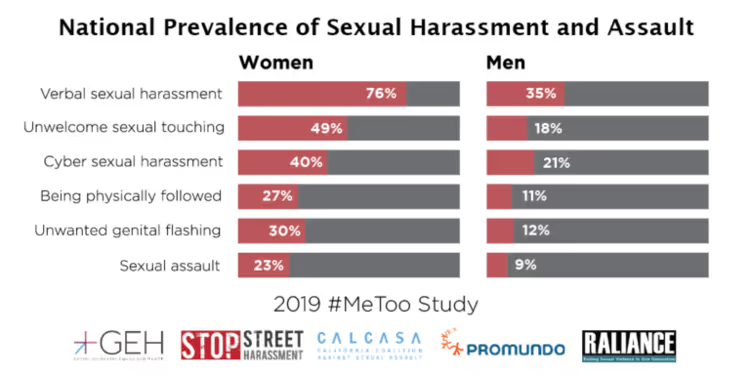
Luckily, there are laws in place to help combat harassment. People can file sexual harassment lawsuits. They can settle with their employer and the harasser in a court of law.
The U.S Equal Employment Opportunity Commission (EEOC) created several laws making it illegal to harass a job applicant or active employee.
According to the federal government, harassment can take the form of “sexual harassment.”
This type of harassment can involve…
- Unwelcome sexual advances
- Requests for sexual favors
- Verbal or physical harassment of a sexual nature
Yet, sexual harassment doesn’t need to be of a sexual nature. It can include offensive remarks about a person’s sex, gender identity, sexual orientation, or pregnancy status. Sexual harassment can take the form of verbal harassment or physical harassment of a sexual nature.
The law doesn’t limit who may be a victim of sexual harassment; the victim can be either a woman or a man. The same thing is true for the identity of the harasser. The EEOC acknowledges that the harasser and victim may be of the same gender.
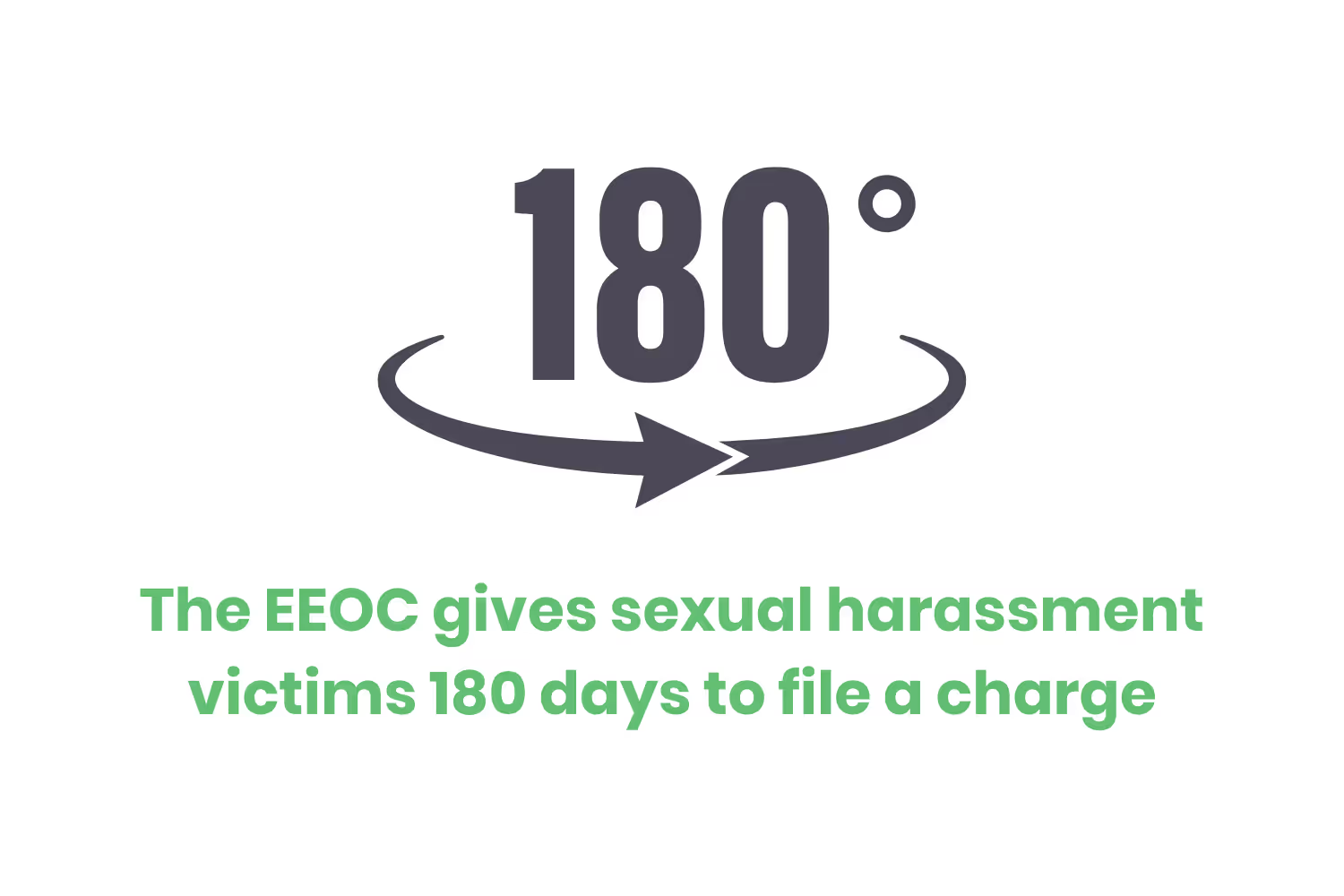
When it comes to filing a lawsuit, the federal government gives sexual harassment victims 180 days to file a charge. This time limit may be longer depending on state laws. Federal employees have 45 days to contact an EEO Counselor.
Speaking of which, 2022 saw several sexual harassment lawsuits and settlements. Below are six such lawsuits and their respective resolutions.
NSC Technologies - July 2022
The EEOC filed a lawsuit against the staffing agency NSC Technologies, LLC and shipbuilder Huntington Ingalls Incorporated. NSC is a staffing company that operates nationwide. They provide temporary labor to a wide range of customers in various industries. Huntington Ingalls builds and repairs large surface ships for the U.S. Navy and U.S. Coast Guard.
This specific situation started when NSC sent some female employees to work on a cleaning crew at a Huntington Ingalls shipyard in Pascagoula, Mississippi. While on the cleaning crew, the women found themselves in a hostile work environment.
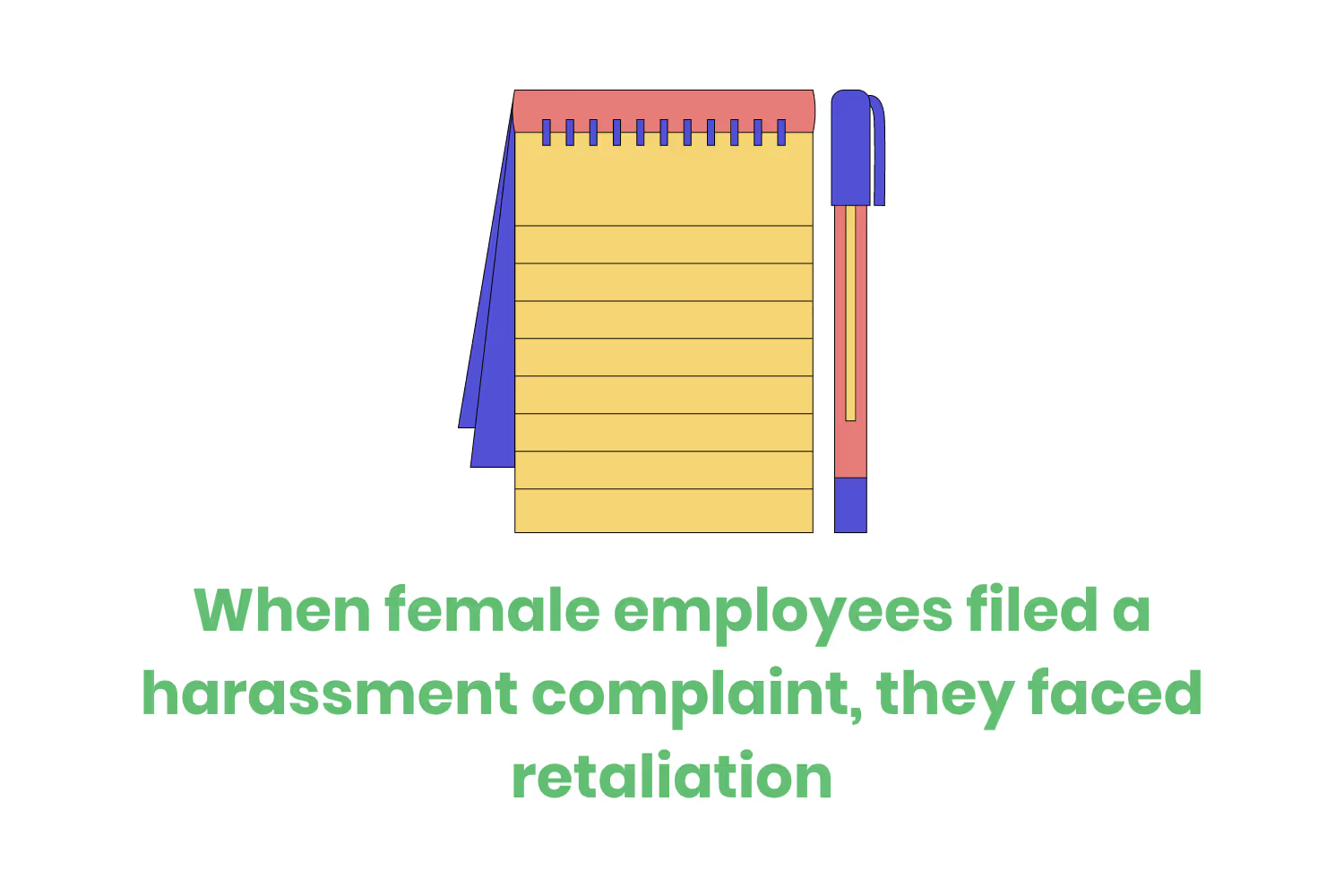
When they filed a complaint about sexual harassment, the women faced retaliation. More specifically, a male Huntington Ingalls employee working as a Ship Superintendent did the following…
- Made sexual comments to female employees
- Engaged in lewd acts in front of female employees
- Threaten to fire the women if they did not protest and accept his sexual advances
- Sexually assaulted two female employees
The Ship Superintendent fired one of the women who refused his advances. Another woman had to quit out of fear he would assault her. He threatened to kill a third female employee after reporting the assaults.
You see, two of the female employees reported this sexual harassment to their immediate and higher-level superiors at NSC. They also made a complaint to the Huntington Ingalls Hotline.
This behavior constitutes sex discrimination in the form of sexual harassment. As such, the situation violates Title VII of the Civil Rights Act of 1964. The law prohibits an employer from allowing a sexually hostile work environment. The law also prevents a company from retaliating against employees who file a complaint about such situations.
The EEOC’s Mobile Local Office completed an investigation of the situation and determined that the situation constituted illegal conduct. They tried to teach a pre-litigation settlement through its voluntary conciliation process but were unable to reach an agreement. So the EEOC filed a lawsuit in the U.S. District Court for the Southern District of Mississippi.
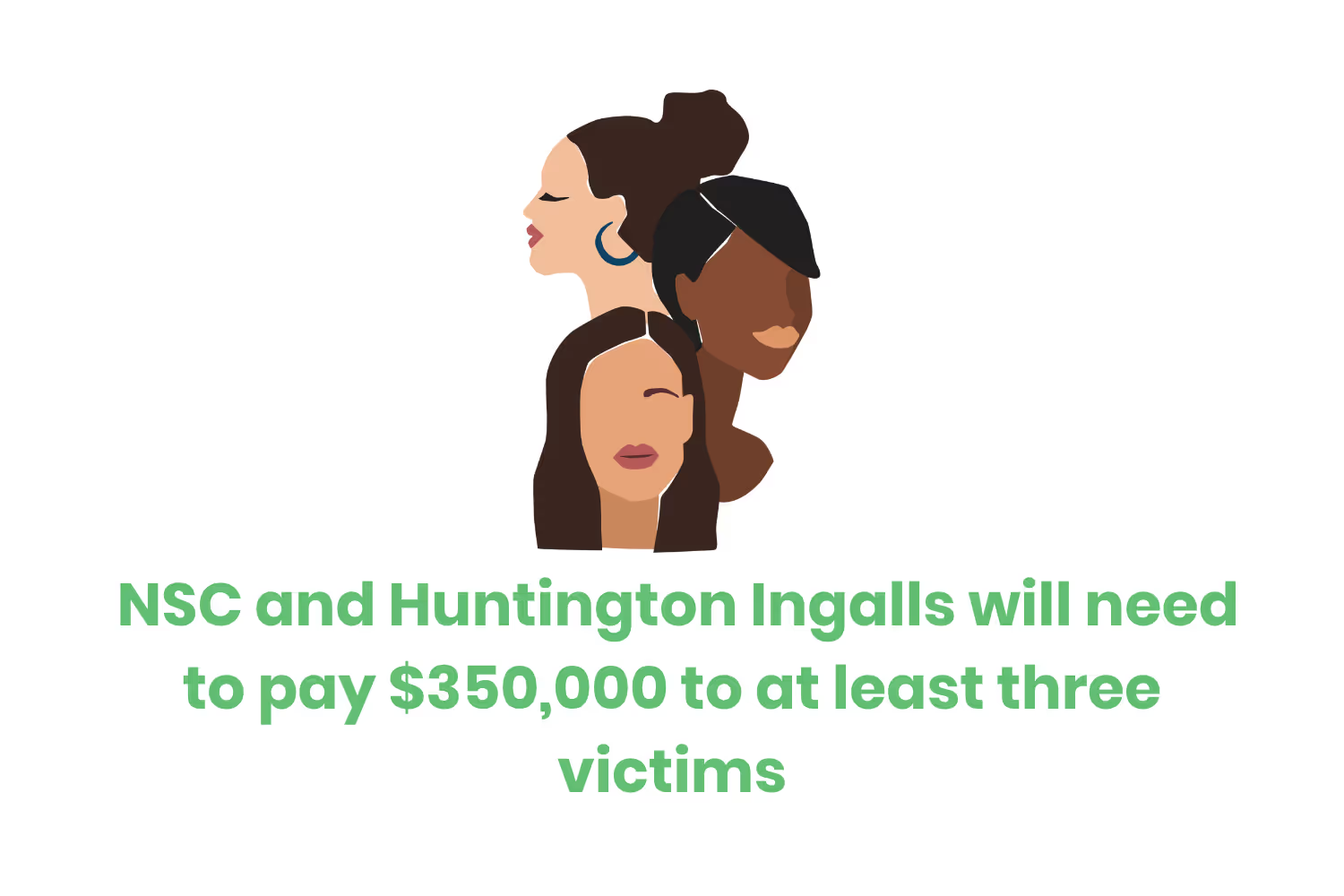
The settlement involves a thirty-month consent decree. NSC and Huntington Ingalls will need to pay $350,000 to at least three victims. The companies will develop or revise policies/procedures to prevent and correct sexual harassment. The companies are also required to conduct harassment training for employees and managers as a means to ensure compliance with the law.
McDonald's - July 2022
Coughlin, Inc. is a Vermont-based company that owns and operates 10 different McDonald’s franchise locations in the New England area.

The EEOC filed a lawsuit when after they learned of allegations about a sexually hostile work environment against employees, most of which are teenagers.
According to the suit, a male night shift manager inappropriately touched employees.
The inappropriate conduct includes…
- Groping genitals, chests, and bottoms,
- Making derogatory comments
- Making threats of physical harm
The lawsuit also alleges that the company retaliated against at least one employee. The retaliation involved revoking her disability-related reasonable accommodation. The company then forced her to quit after she made complaints about the company’s actions.
Luckily, Coughlin Inc. settled with the EEOC. The settlement requires the company to reform its business practices to prevent further harassment. Other provisions include…
- Implementation of extensive anti-discrimination harassment training
- This includes interactive training for managers and HR personnel
- Revision of company equal employment opportunity policies and procedures when investigating sexual harassment allegations
- Employing an independent contractor to verify the company’s compliance with the decree
- Mandating the company to report all complaints about sex discrimination and/or retaliation to the EEOC

Lastly, the settlement requires Coughlin to establish a settlement fund of $1.2 million for the victims of harassment. The company will pay $125,000 in civil penalties and legal fees to the state of Vermont. The estate of one of the victims will receive a separate $275,000. In total, the company must now pay $1.6 million in damages.
AFSC - July 2022
Armed Forces Service Corporation (AFSC) is a Virginia-based health and wellness provider. Located in Arlington, the company provides healthcare to military service members.
A male employee subjected a female coworker to sexual harassment in 2018. The alleged sexual harassment took the form of both verbal and physical harassment. Unfortunately, there’s no more information about the situation.
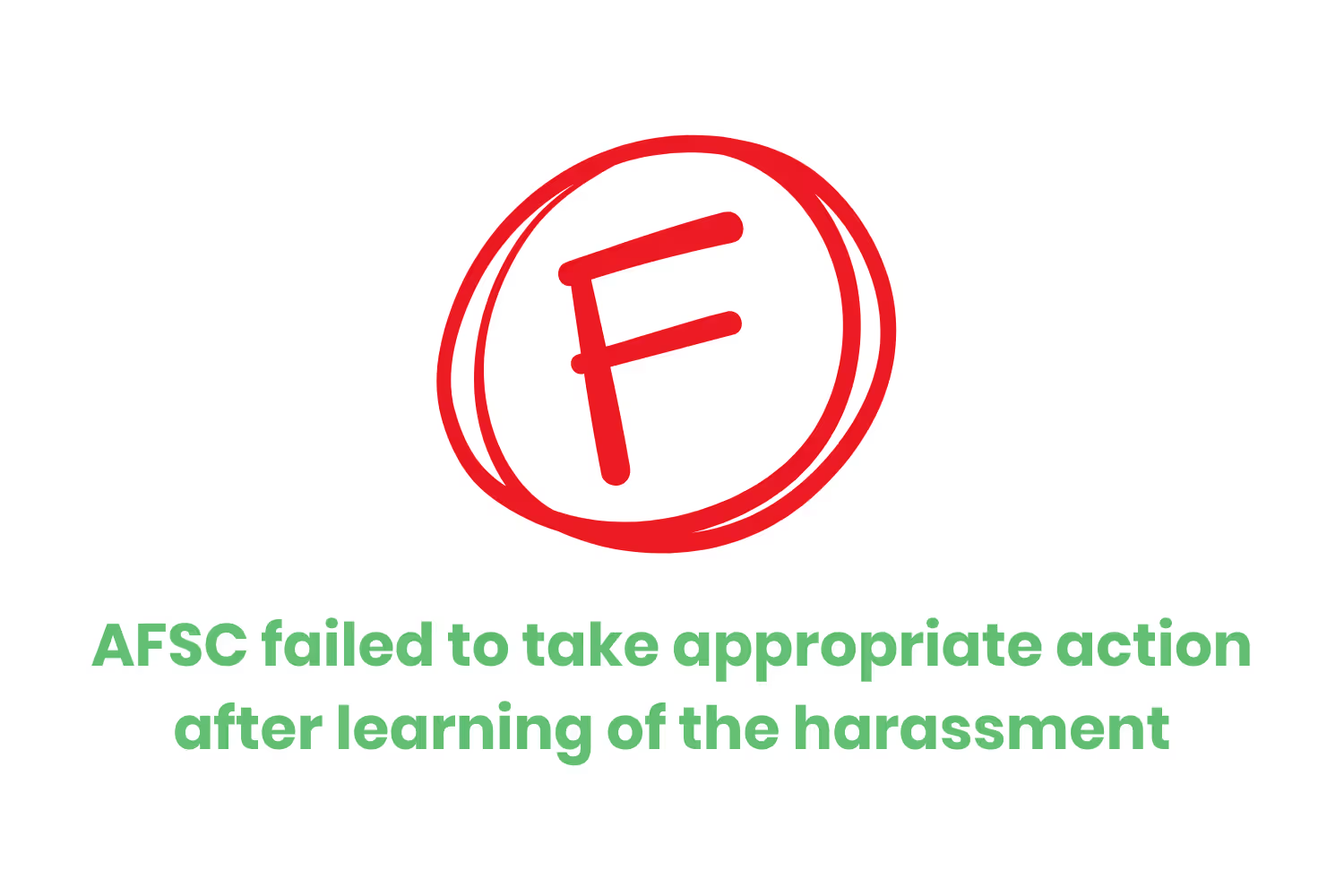
According to a lawsuit filed by the EEOC, AFSC failed to take appropriate action after learning of the harassment. When the woman filed a complaint, the company retaliated against her.
Such a situation violates Title VII of the Civil Rights Act of 1964. It’s illegal to discriminate based on sex and retaliate against someone reporting the discrimination.
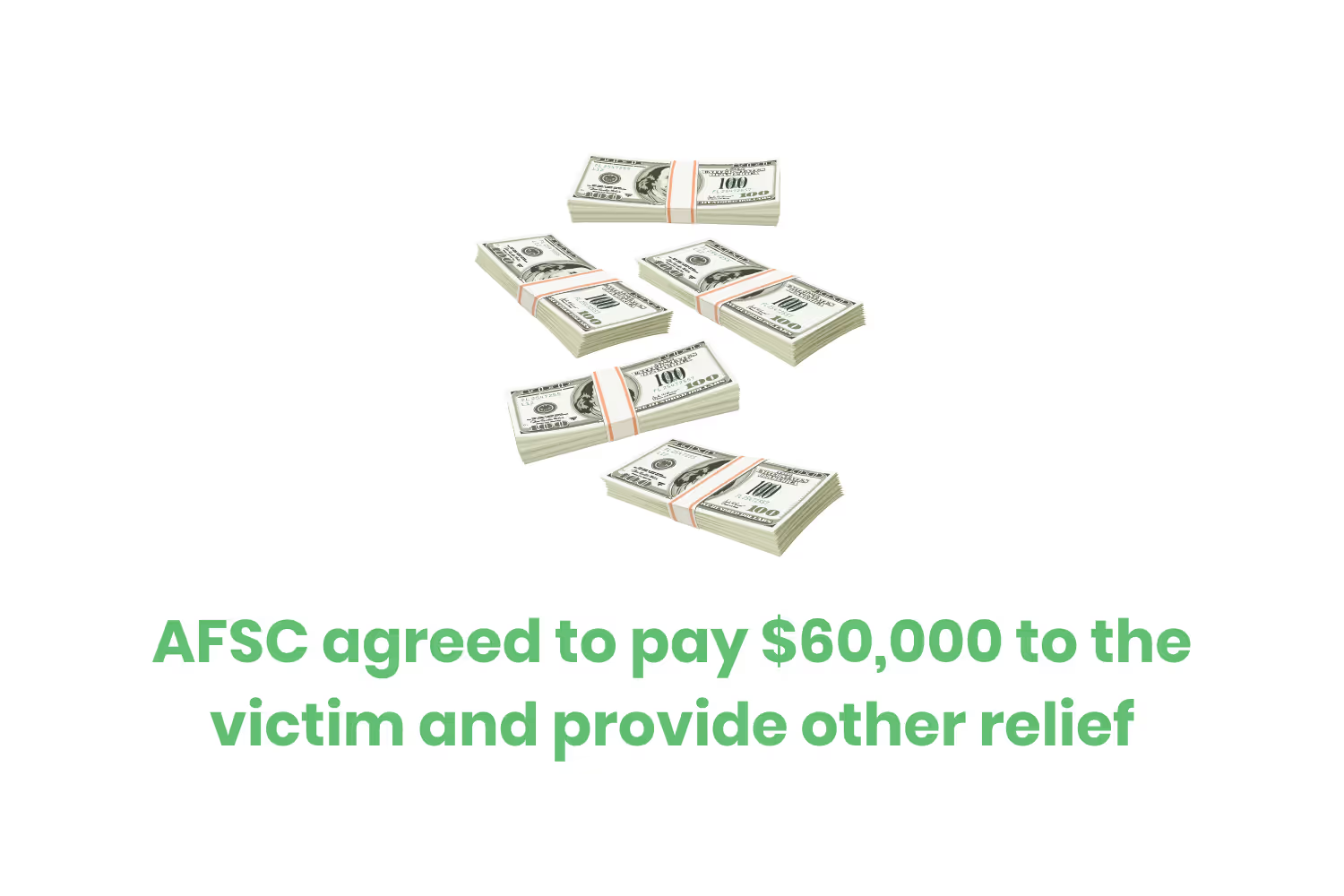
The EEOC filed the suit in the U.S. District Court for Southern California. Under the two-year decree, AFSC agreed to pay $60,000 to the victim and provide other relief.
The company also agreed to place more effective measures to address and prevent discrimination in the workplace, including…
- Reviewing, revising, and implementing companywide policies addressing discrimination and harassment
- A clear explanation of prohibited conduct
- Assurance to take prompt corrective action
- Outlining an internal complaint process
- A centralized tracking system for complaint
- Providing anti-discrimination training.
Kelley Williamson Company - July 2022
Kelley Williamson Company is a Rockford-based gas station and convenience store operator. The company faces a lawsuit filed by the EEOC about sexual harassment and improper disclosure of confidential information.
A female employee at a Bryon, Illinois gas station location endured months of sexual harassment. She faced sexual advances and crude jokes made by a male customer.
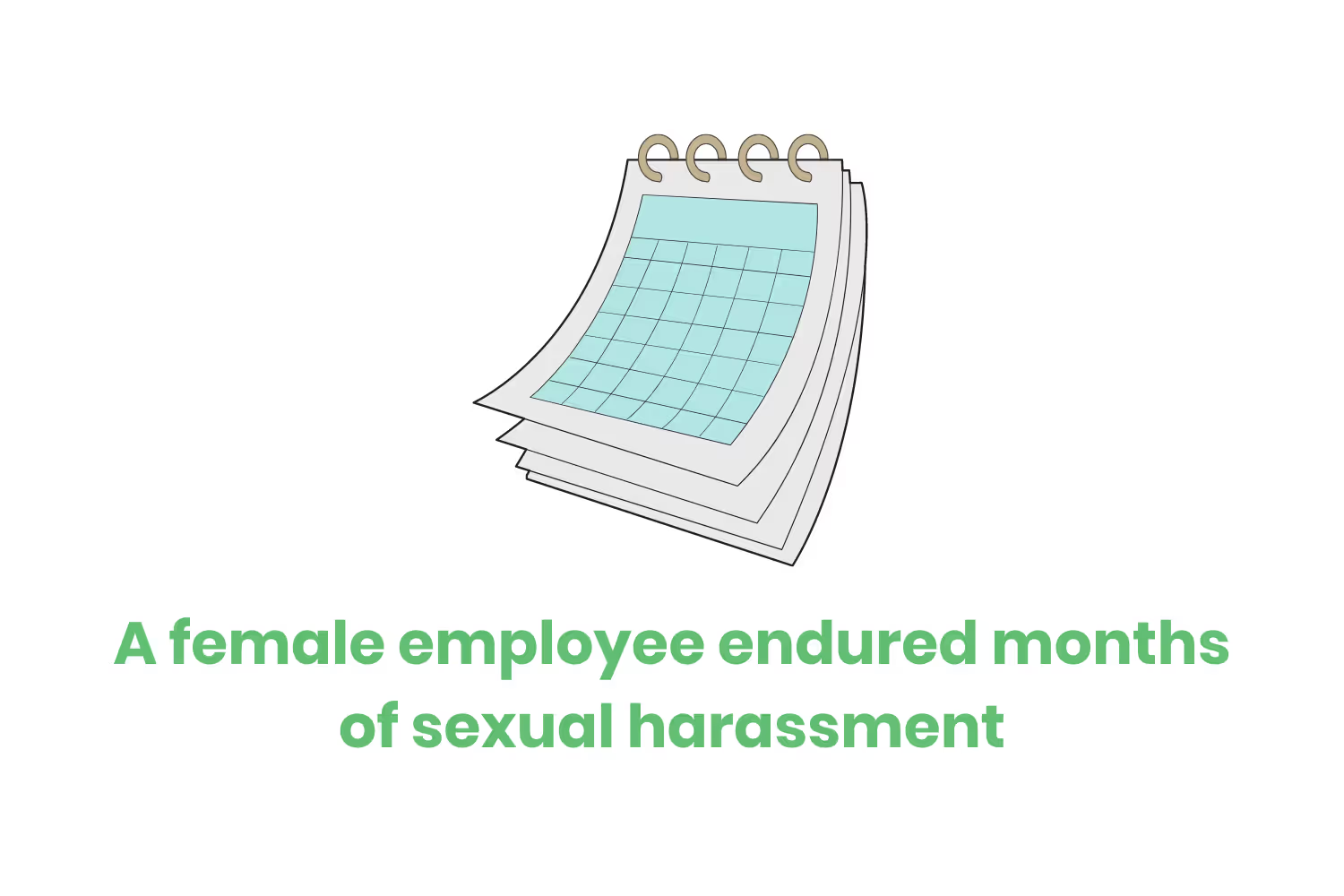
When the employee reported the situation to Kelley Williamson’s management, the company failed to act. Even when other employees and customers tried to report the harassment, the company did not take prompt action to put an end to the situation.
Additionally, the company failed to maintain confidentiality about the employee's medical information. According to an investigation conducted by the EEOC, a store manager shared the employee’s confidential medical information with other employees who had no legitimate need to know the information..
Title VII of the Civil Rights Act of 1964 prohibits sexual harassment in employment. The Americans with Disabilities Act requires that employers keep any medical information about employees confidential. The alleged conduct in the Kelley Williamson Company violates both of these laws.
As a result, the EEOC filed suit in the U.S. District Court for the Northern District of Illinois after first attempting to reach a pre-litigation settlement.
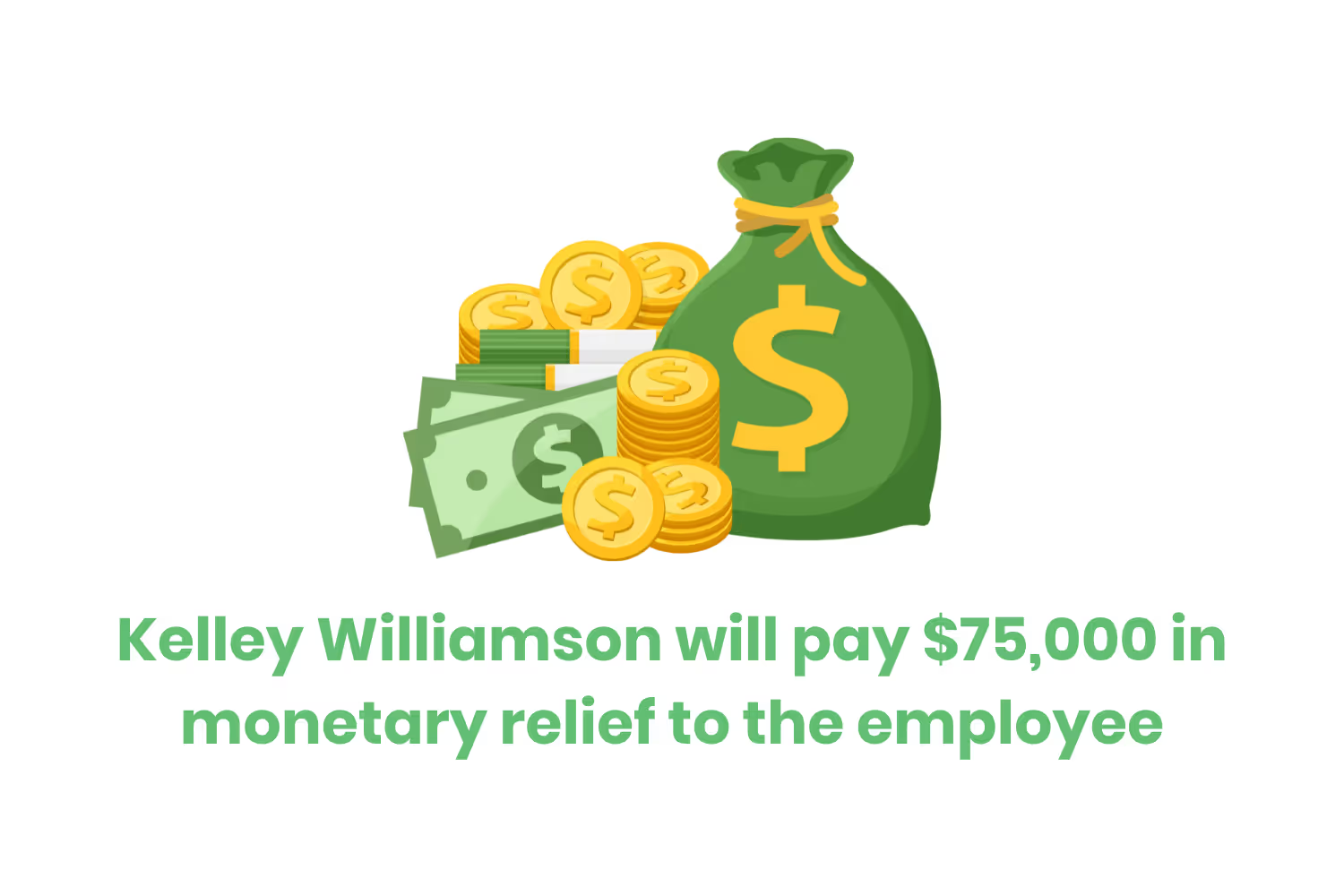
The consent decree is now approved by the federal district court. As such, the EEOC will track the Kelley Williamson Company’s compliance with all the settlement obligations for the next four years.
These obligations include…
- Paying $75,000 in monetary relief to the employee
- Providing injunctive relief
- Training about Title VII
- Training about the ADA
- Compliance-related reporting to the EEOC
Hawthorn Suites - June 2022
Until November 2021, GIPHX10 and Jaffer, Inc. operated as Hawthorn Suites by Wyndham. Hawthorn Suites is a franchise hotel chain featuring meeting rooms, swimming pools, and free hot buffet breakfasts and dinners.
One of the hotels they operate is near the Seattle-Tacoma airport in Kent, Washington.
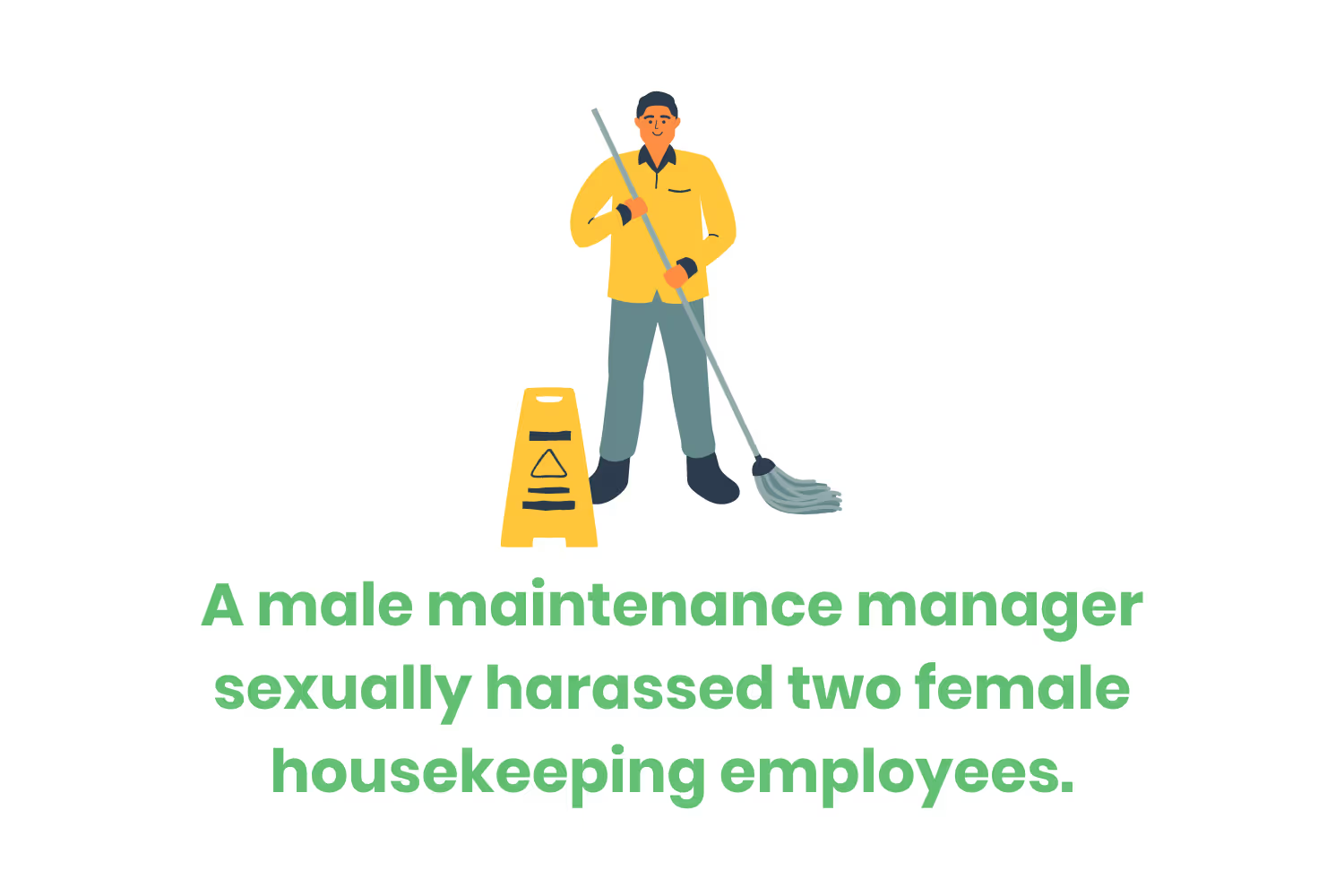
The EEOC initiated a sexual harassment lawsuit against the two companies. According to the lawsuit, the owners of the Kent, Washington Hawthorn allowed a male maintenance/housekeeping manager to sexually harass two female housekeeping employees.
The abuse involved…
- Groping the women when they were alone cleaning the hotel rooms
- Mocking the women for objecting to the assaults
- Making sexually explicit comments to the women
- Repeatedly threatening one of the female workers with rape
Due to the pervasiveness of the harassment, one of the women quit out of fear for her safety.
One of the housekeepers reported the harassment to the general manager with the help of a bilingual coworker. However, GIPHX10 and Jaffer, Inc. failed to conduct a thorough investigation. They simply accepted the manager’s denial of the allegations.
The lawsuit claims that the general manager proceeded to retaliate against the housekeeper who spoke up by cutting her work hours and denying an hourly raise given to other housekeepers.
The alleged conduct violates Title VII of the Civil Rights Act of 1964.
The EEOC first attempted to reach a pre-litigation settlement through its conciliation process. When they could not settle, the EEOC proceeded to file the lawsuit in the U.S. District Court for the Western District of Washington in Seattle.

The settling of the suit involves a three-year consent decree. The two companies will pay $370,00 to the two workers. The decree also requires that both companies retain an independent consultant to help them develop policies and procedures regarding sexual harassment and retaliation. These policies will help employees recognize, prevent, and correct sexual harassment. The consultant will also help the companies develop an internal complaint system.
The companies agreed to…
- Implement company-wide training
- Investigation training for managers and owners with an active role in managing the hotels
- Policies to ensure accountability concerning anti-discrimination policies
The EEOC will monitor the workplace during the three-year decree to ensure compliance with anti-discrimination and anti-harassment laws.
Floyd Central High School - April 2022
The father of a Floyd Central High School female student filed a complaint last year with the Indiana Civil Rights Commission (ICRC).
The complaint pertains to the New Albany-Floyd County Consolidated School Corp.’s response to a threat of rape made by another student against his daughter.

In the summer of 2021, the female student participated in an annual football event at Floyd Central. The parent alleges that during practice for the event on school grounds, a male football player posted a video clip of the female student on Snapchat to another 50 high school boys. The post referenced rape.
The victim’s boyfriend showed her the photo before the football player did anything.
The parent of the now graduated student believes that the school’s administration did not take proper action. The issue was “brushed under the rug”. This belief stems from the lenient disciplinary action against the football player, involving a single day of in-school suspension and missing one football scrimmage.
With the help of the NAFCS assistant superintendent, the father filed a formal Title IX complaint. The ICRC issued a notice stating that there was, “probable cause to believe an unlawful discriminatory practice occurred in this instance.”

The settlement did not involve any monetary compensation. Instead, administrative-level staff at the high school had to take extensive Title IX training. The training focused specifically on the proper response to sexual harassment allegations. There was also training administered about staff sensitivity to students' gender, religion, race, and cultural origin.
Conclusion
Sexual harassment lawsuits are more common than we care to admit. They can happen in any industry across the nation and in companies of any size. Many victims receive monetary compensation for all of the abuse they endured. Some organizations receive further punishments through a variety of reporting and stipulations.
There are steps organizations can take to try and limit how often sexual harassment occurs. By taking these steps, organizations may face fewer sexual harassment lawsuits from the EEOC filed on behalf of the victims.
The first step to limiting harassment is to provide training about what it is. Not everyone knows what constitutes harassment. 35% of workers don’t know what behaviors can create a hostile work environment. Another 32% of the workforce reported that they were unaware that some jokes can qualify as sexual harassment.
Some of the sexual harassment lawsuits above have something in common: the companies did not take appropriate action when they received a complaint about harassment. This is true for the broader workforce. Only half of the people who made reports about harassment say the employer investigated the situation. Organizations should implement a zero-tolerance policy and thoroughly investigate every harassment report.
After implementing preventative steps to mitigate harassment situations, it is important to remind all staff members to do their part. If you see something, say something. File a complaint and make sure that your employer investigates.
Emphasize your product's unique features or benefits to differentiate it from competitors
In nec dictum adipiscing pharetra enim etiam scelerisque dolor purus ipsum egestas cursus vulputate arcu egestas ut eu sed mollis consectetur mattis pharetra curabitur et maecenas in mattis fames consectetur ipsum quis risus mauris aliquam ornare nisl purus at ipsum nulla accumsan consectetur vestibulum suspendisse aliquam condimentum scelerisque lacinia pellentesque vestibulum condimentum turpis ligula pharetra dictum sapien facilisis sapien at sagittis et cursus congue.
- Pharetra curabitur et maecenas in mattis fames consectetur ipsum quis risus.
- Justo urna nisi auctor consequat consectetur dolor lectus blandit.
- Eget egestas volutpat lacinia vestibulum vitae mattis hendrerit.
- Ornare elit odio tellus orci bibendum dictum id sem congue enim amet diam.
Incorporate statistics or specific numbers to highlight the effectiveness or popularity of your offering
Convallis pellentesque ullamcorper sapien sed tristique fermentum proin amet quam tincidunt feugiat vitae neque quisque odio ut pellentesque ac mauris eget lectus. Pretium arcu turpis lacus sapien sit at eu sapien duis magna nunc nibh nam non ut nibh ultrices ultrices elementum egestas enim nisl sed cursus pellentesque sit dignissim enim euismod sit et convallis sed pelis viverra quam at nisl sit pharetra enim nisl nec vestibulum posuere in volutpat sed blandit neque risus.

Use time-sensitive language to encourage immediate action, such as "Limited Time Offer
Feugiat vitae neque quisque odio ut pellentesque ac mauris eget lectus. Pretium arcu turpis lacus sapien sit at eu sapien duis magna nunc nibh nam non ut nibh ultrices ultrices elementum egestas enim nisl sed cursus pellentesque sit dignissim enim euismod sit et convallis sed pelis viverra quam at nisl sit pharetra enim nisl nec vestibulum posuere in volutpat sed blandit neque risus.
- Pharetra curabitur et maecenas in mattis fames consectetur ipsum quis risus.
- Justo urna nisi auctor consequat consectetur dolor lectus blandit.
- Eget egestas volutpat lacinia vestibulum vitae mattis hendrerit.
- Ornare elit odio tellus orci bibendum dictum id sem congue enim amet diam.
Address customer pain points directly by showing how your product solves their problems
Feugiat vitae neque quisque odio ut pellentesque ac mauris eget lectus. Pretium arcu turpis lacus sapien sit at eu sapien duis magna nunc nibh nam non ut nibh ultrices ultrices elementum egestas enim nisl sed cursus pellentesque sit dignissim enim euismod sit et convallis sed pelis viverra quam at nisl sit pharetra enim nisl nec vestibulum posuere in volutpat sed blandit neque risus.
Vel etiam vel amet aenean eget in habitasse nunc duis tellus sem turpis risus aliquam ac volutpat tellus eu faucibus ullamcorper.
Tailor titles to your ideal customer segment using phrases like "Designed for Busy Professionals
Sed pretium id nibh id sit felis vitae volutpat volutpat adipiscing at sodales neque lectus mi phasellus commodo at elit suspendisse ornare faucibus lectus purus viverra in nec aliquet commodo et sed sed nisi tempor mi pellentesque arcu viverra pretium duis enim vulputate dignissim etiam ultrices vitae neque urna proin nibh diam turpis augue lacus.




